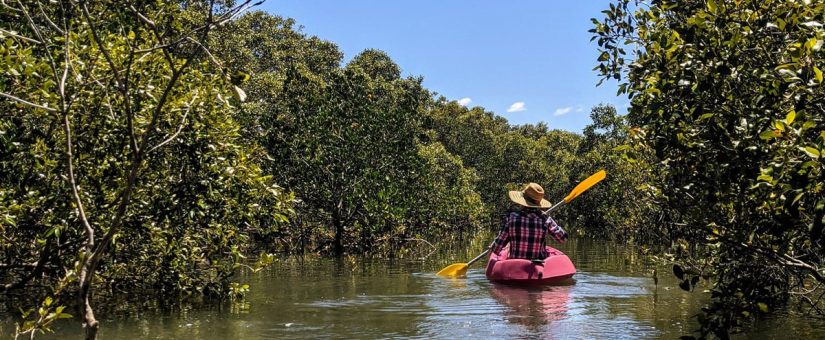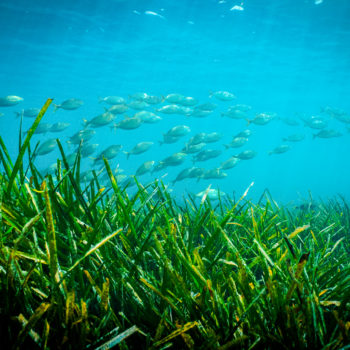
Climate smart mangrove restoration
- Posted by Natasha Watson
- On March 18, 2022
By CJ Brown
The extent of loss of coastal ecosystems means that to recover what we’ve lost we need to restore coastal habitats like mangroves. But coastal restoration is risky in a rapidly changing climate.
In our new project we will be working with the World Wildlife Fund (US Oceans team) to look at climate smart restoration and protection of mangroves. The project “Global Prioritization of Mangrove Conservation and Restoration incorporating future Climate Change Impacts” is lead by Associate Professor Chris Brown (The Global Wetlands Project) and Dr Dominic Andradi-Brown (WWF-US).
Investment in mangrove conservation actions is rapidly scaling-up, so we need to make sure these well intentioned efforts aren’t undone by the future impacts of climate change. Two climate impacts of particular importance on the coast are sea level rise and storms. Sea levels are rising with global warming and these rises will accelerate into the future. Tropical storms can damage or wipe out mangrove forests. Trends for storms are variable, but overall the frequency of severe storms is expected to increase in the future.
Our project has two parts. The first part will be lead by Dr Christina Buelow, a coastal ecosystem modeller from The Global Wetlands Project.
Dr Buelow will integrate climate models with models of mangrove forest change to predict locations globally that are most likely to be affected by climate impacts. We will then use this information to identify areas that are low risk for mangrove conservation and areas where additional adaptation measures will be needed (such as planned retreat or modifying the species composition of restoration actions).
The second part focuses on local-scale action and is led by socio-ecological scientist Dr Jaramar Villareal-Rosas. She will lead work that supports WWF offices across the globe to implement climate smart conservation plans for mangroves. This will include adapting restoration techniques so that restored habitat is more resilient to climate change, and helping teams identify sites that are resilient to climate change.
Overall this project aims to advance our ability to plan mangrove conservation for climate change, at local and global scales.
The Global Wetlands Project team on the project includes: Associate Professor Chris Brown (Lead), Dr Christina Buelow, Dr Jaramar Villareal-Rosas, Professor Rod Connolly, Dr Mischa Turschwell and Dr Fernanda Adame.




0 Comments